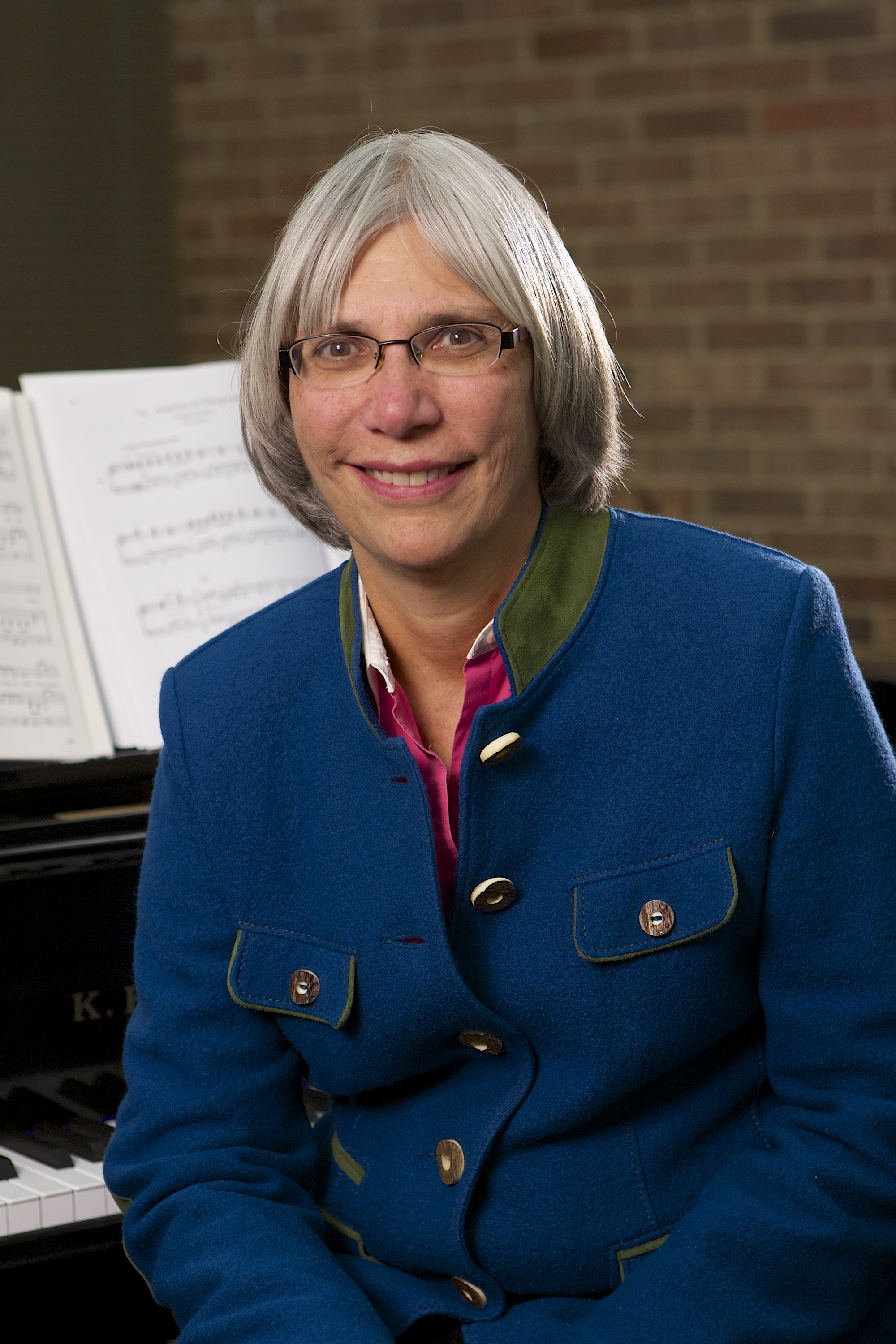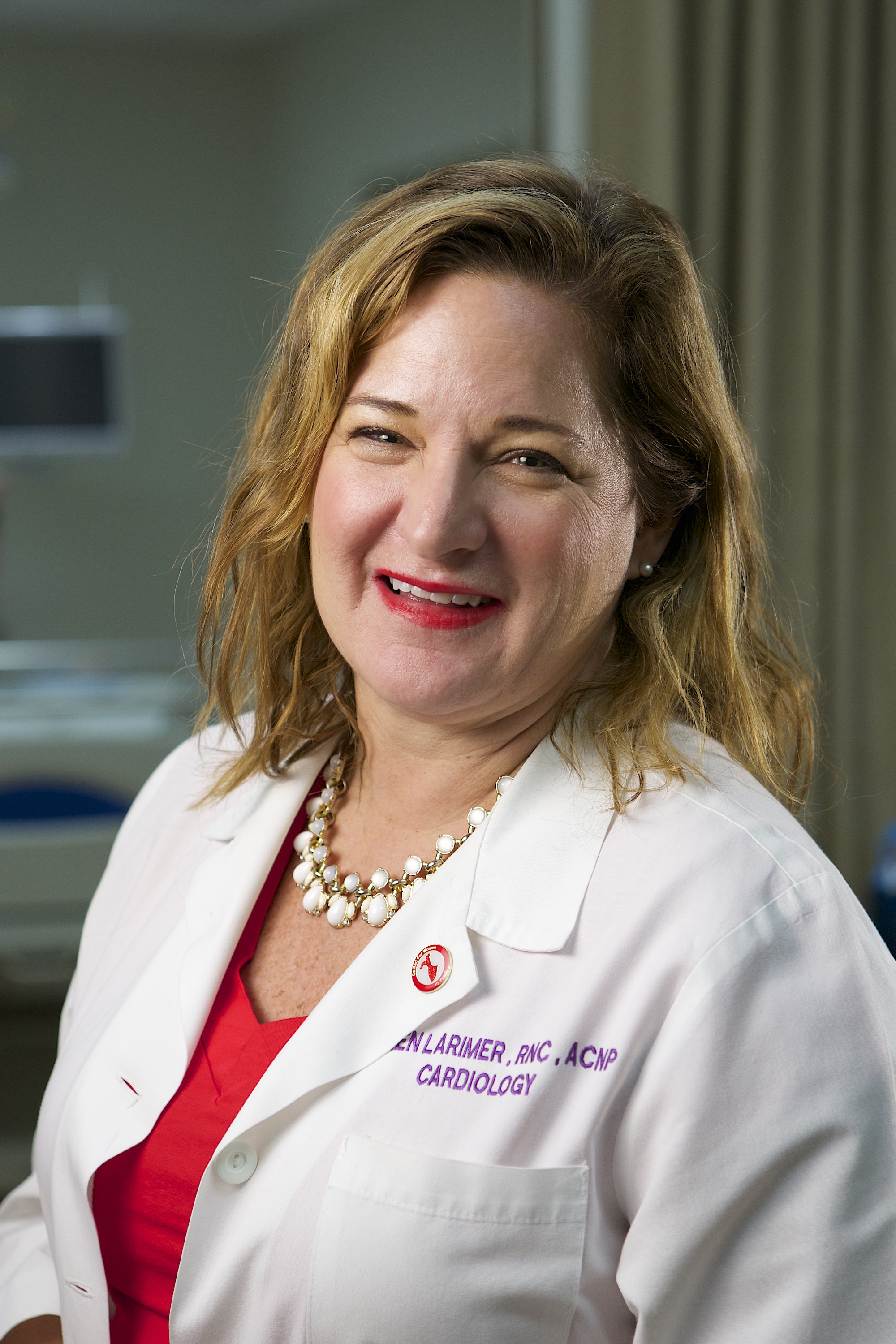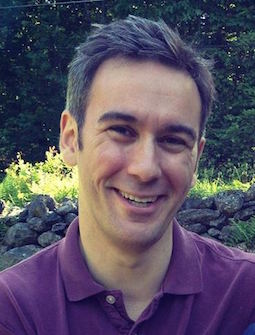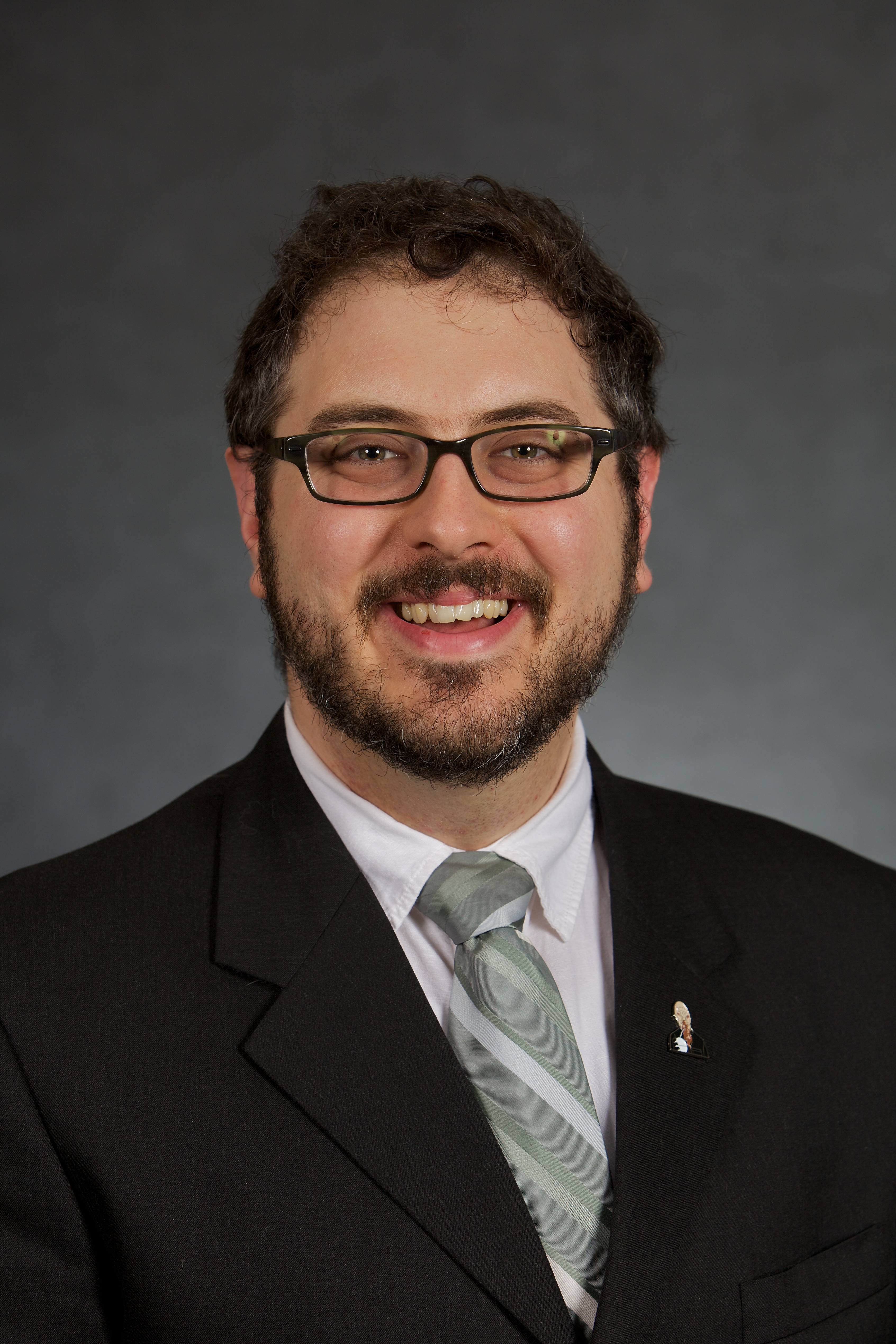CHICAGO — DePaul University faculty experts are available to discuss and provide insight into the many different aspects of Valentine’s Day including its religious history, how the heart reacts to being around someone you love and how romantic music can induce nostalgia and tug at the heartstrings.
VIDEO
Scholarly experts available to speak include:
 “Social support is important to both prevent mental illness and to support people with mental illness. During Valentine's Day, and other holidays, people should rely on family and friends for support,” said Mona Shattell who is an associate dean for the College of Science and Health. (Photo by Jeff Carrion)Mona Shattell, associate dean, College of Science and Health
“Social support is important to both prevent mental illness and to support people with mental illness. During Valentine's Day, and other holidays, people should rely on family and friends for support,” said Mona Shattell who is an associate dean for the College of Science and Health. (Photo by Jeff Carrion)Mona Shattell, associate dean, College of Science and Health. Shattell also is an associate professor in nursing and community psychology who can discuss the effects Valentine’s Day has on mental health issues like depression. “For people who are already depressed and single, this holiday can be a trigger. That’s not to say that every single person gets depressed on Valentine’s Day, but it is such a couples holiday that it can have at least a momentary impact on mental health,” said Shattell.
“Social support is important to both prevent mental illness and to support people with mental illness. During Valentine’s Day, and other holidays, people should rely on family and friends for support. If people know Valentine’s Day is hard for them, they should be proactive. Maybe schedule something with a friend or a family member so they’re not alone,” said Shattell. “Valentine’s Day is about love. It can be about friendship love, family love, pets … it’s sort of billed as this romantic love holiday, but it can certainly be seen as more broad.” Shattell can be reached at mshattell@depaul.edu or 773-325-4106.
 “Especially on Valentine's Day, rehearing a song from a special time and place — or a song that sounds similar to it — triggers our brain to relive those powerful romantic emotions,” said Cathy Ann Elias who is a professor for the School of Music. (Photo by Jeff Carrion)Cathy Ann Elias, associate professor, School of Music
“Especially on Valentine's Day, rehearing a song from a special time and place — or a song that sounds similar to it — triggers our brain to relive those powerful romantic emotions,” said Cathy Ann Elias who is a professor for the School of Music. (Photo by Jeff Carrion)Cathy Ann Elias, associate professor, School of Music. Elias’ knowledge spans across the musical spectrum. As a teacher of musicology, she studies medieval and Renaissance music, and the Beatles. Elias also understands music’s evolution from the Romantic period through present day. “We are the ones who make music “romantic” because it evokes our emotional memories,” Elias said. “Especially on Valentine’s Day, rehearing a song from a special time and place — or a song that sounds similar to it — triggers our brain to relive those powerful romantic emotions.” Elias can be reached at
celias@depaul.edu or 773-325-1297.
 “The origins of Valentine's Day date back to roughly 1,000 years ago, and it's only within the last 200 years or so that written Valentine messages and cards made their appearance,” said James Mourey who is an assistant professor for the Driehaus College of Business. (Photo by Jeff Carrion)James Mourey, assistant professor, Driehaus College of Business
“The origins of Valentine's Day date back to roughly 1,000 years ago, and it's only within the last 200 years or so that written Valentine messages and cards made their appearance,” said James Mourey who is an assistant professor for the Driehaus College of Business. (Photo by Jeff Carrion)James Mourey, assistant professor, Driehaus College of Business. Mourey, an expert in consumer science, can discuss the relationship consumers have with Valentine’s Day. This includes consumer spending habits as well as the idea of Valentine’s Day as a “Hallmark” holiday. “The origins of Valentine’s Day date back to roughly 1,000 years ago, and it’s only within the last 200 years or so that written Valentine messages and cards made their appearance,” said Mourey. “Furthermore, it’s only within the last 50 years that traditions have extended beyond cards to other gifts. So, while companies have certainly commercialized the holiday, the expression of love that serves as the foundation of the holiday has been around for over 1,000 years,” he said.
“If companies have found a way to make a bit of money out of people’s desire to express their love for one another it shouldn’t be a terrible thing. Sometimes the most romantic of Valentine’s sentiments are the free, handwritten letters comparable to those that would have been sent 200 years ago,” said Mourey.
“The criticism is also rooted in a psychological need to defend one’s own insecurities: I can’t be happy for others in a relationship because I’m not in one,” said Mourey. “This is a strange application of the ‘Fundamental Attribution Error’ in which we attribute our successes to ourselves but our failures to external situations. So some people might rationalize their single status by saying, ‘Valentine’s Day is a stupid holiday that companies use to make money,’ as it makes them feel better about themselves; or at least about being single if that’s an issue for them.” Mourey can be reached at jmourey@depaul.edu or 312-362-7663.
 “There is such a thing as ‘broken heart syndrome.' This condition is usually precipitated by a stressful situation, such as the death of a loved one. When experiencing this, the person will have sudden chest pain or think they're having a heart attack,” said Karen Larimer who is an assistant professor of nursing for the College of Science and Health. (Photo by Jeff Carrion)Karen Larimer, assistant professor of nursing, College of Science and Health
“There is such a thing as ‘broken heart syndrome.' This condition is usually precipitated by a stressful situation, such as the death of a loved one. When experiencing this, the person will have sudden chest pain or think they're having a heart attack,” said Karen Larimer who is an assistant professor of nursing for the College of Science and Health. (Photo by Jeff Carrion)Karen Larimer, assistant professor of nursing, College of Science and Health. Larimer is an expert in cardiovascular health who has extensive knowledge of the physiology of the heart, including the effects love has on it. “There is such a thing as ‘broken heart syndrome.’ This condition is usually precipitated by a stressful situation, such as the death of a loved one. When experiencing this, the person will have sudden chest pain or think they're having a heart attack,” said Larimer. “In general, stress is really at the core of it. Recent data was published demonstrating that married people had a 5 percent lower risk of any cardiovascular disease compared to single people. Widowed people had a 3 percent greater risk of it and divorced people, a 5 percent greater risk, compared to married folks,” said Larimer.
“Being in a relationship may help keep you healthy, but my opinion is that if you are stressed out by being in a relationship, it’s likely not good for your heart. If you are stressed out being single, it is likely not good for your heart.” Larimer can be reached at klarimer@depaul.edu or 773-325-8105.
 Although we associate St. Valentine’s Day with romantic love, this association has more to do with the 14th century poetry than it does with the third century St. Valentine,” said Scott Moringiello who is an assistant professor for the College of Liberal Arts and Social Sciences.Scott Moringiello, assistant professor, College of Liberal Arts and Social Sciences
Although we associate St. Valentine’s Day with romantic love, this association has more to do with the 14th century poetry than it does with the third century St. Valentine,” said Scott Moringiello who is an assistant professor for the College of Liberal Arts and Social Sciences.Scott Moringiello, assistant professor, College of Liberal Arts and Social Sciences. Moringiello is an expert in Catholic studies including biblical history. “Although we associate St. Valentine’s Day with romantic love, this association has more to do with the 14th century poetry than it does with the third century St. Valentine,” said Moringiello. “The historical Valentine, about whom we know very little, is in many ways less interesting than the legends that surround the priest who was martyred Feb. 14, 273,” Moringiello said.
“Legends surrounding St. Valentine have him restoring the sight of his jailer’s daughter, or secretly marrying couples so that the husbands would not have to fight in the military, or refusing to sacrifice to pagan idols,” said Moringiello. “Our current tradition of associating St. Valentine with romantic love likely comes from the poet Geoffrey Chaucer. In the late 14th century, Chaucer and some friends wrote poems that featured St. Valentine as the patron saint of mating birds and human lovers. Birds were believed to mate in the middle of February, which was — and is — Valentine’s feast day.” Moringiello can be reached at smoringi@depaul.edu or 773-325-8692.
 “While a romantic comedy might have a great weekend on Valentine's Day, it's true that sales will really take off on DVD, Blu-ray and download, as more and more people opt to stay in rather than go to the theater,” said Paul Booth associate professor for the College of Communication. (Photo by Jeff Carrion)Paul Booth, associate professor, College of Communication
“While a romantic comedy might have a great weekend on Valentine's Day, it's true that sales will really take off on DVD, Blu-ray and download, as more and more people opt to stay in rather than go to the theater,” said Paul Booth associate professor for the College of Communication. (Photo by Jeff Carrion)Paul Booth, associate professor, College of Communication. Booth teaches in media and cinema studies and is an expert in popular culture, fandom, new media and cultural studies. He can discuss the relationship between Valentine’s Day and romantic comedy movies.
“While a romantic comedy might have a great weekend on Valentine's Day, it’s true that sales will really take off on DVD, Blu-ray and download, as more and more people opt to stay in rather than go to the theater. Box office numbers may fall while download numbers soar,” said Booth. “For example, boxofficemojo.com says that ‘My Big Fat Greek Wedding’ is the highest grossing romantic comedy of all time, but it was released in April. ‘Hitch’ is the third highest grossing romantic comedy and it was released Valentine's Day weekend in 2005,” said Booth. “Ironically, the movie ‘Valentine's Day’ is the 24th highest grossing romantic comedy and it was released on the holiday.” Booth can be reached at pbooth@depaul.edu or 312-362-7753.
###
Media Contact:
Jon Cecero
jcecero@depaul.edu
(312) 362-7640